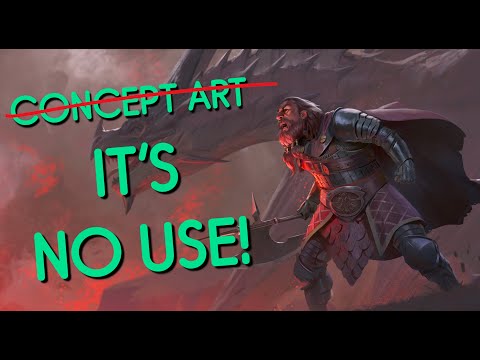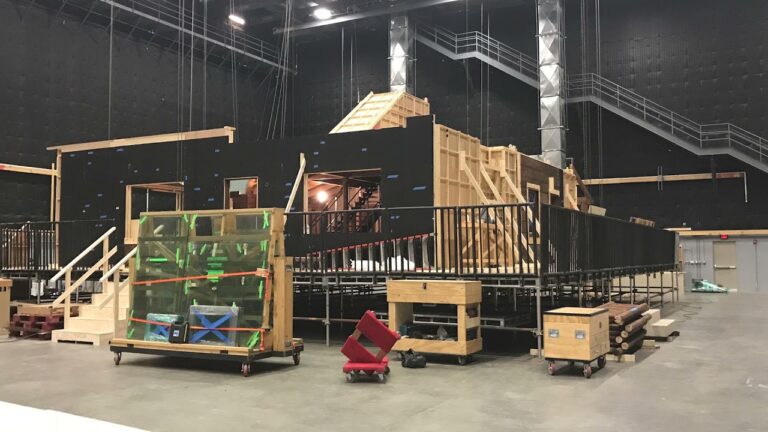Discover the World of Concept Art: Job Description and Salary

Concept Artist Job Description Template
Concept Artist Job Description A concept artist is a professional who creates visual representations of ideas, concepts, and characters for various forms of media, including video games, films, television shows, and advertisements. They are responsible for translating the vision of the project’s art director or creative team into visually appealing and engaging designs. The main responsibilities of a concept artist include sketching and illustrating ideas, creating storyboards and character designs, and developing visual style guides. They collaborate closely with other members of the creative team, such as art directors, animators, and game designers, to ensure that the visual elements align with the overall vision of the project. Concept artists use various traditional and digital tools, such as pencils, paints, and computer software, to create their artwork. They must also stay updated on current artistic trends and techniques to continuously improve their skills and stay competitive in the industry. Attention to detail and strong communication skills are crucial for concept artists, as they need to effectively convey their ideas and collaborate with team members. Additionally, they must be able to work under tight deadlines and be open to feedback and revisions. In conclusion, a concept artist plays a vital role in the creation of visual content for various forms of media. They contribute their artistic skills and imagination to bring ideas to life and help shape the visual aspects of a project.Concept Artist Responsibilities
Concept Artist Requirements
How Much Does A Concept Artist Make?
Concept Artist Salary
| Experience Level | Salary Range |
|---|---|
| Junior Concept Artist | $40,000 – $60,000 per year |
| Mid-Level Concept Artist | $60,000 – $80,000 per year |
| Senior Concept Artist | $80,000 – $100,000+ per year |
A concept artist is responsible for creating visual artwork that serves as the initial representation of characters, environments, and objects for various forms of media such as video games, films, and animations. They work closely with art directors and other team members to bring ideas to life and establish the visual style of the project.
The salary of a concept artist can vary depending on factors such as experience level, location, and the size and reputation of the company. Junior concept artists typically earn between $40,000 to $60,000 per year, while mid-level artists can expect to make between $60,000 to $80,000 per year. Senior concept artists, who have extensive experience and expertise, can earn $80,000 or more annually.
It’s important to note that these salary ranges are approximate and can vary significantly. Factors like additional benefits, bonuses, and freelance opportunities can also affect a concept artist’s total income.
Concept Artist Salaries by Country
Top Paying Countries for Concept Artist
| Country | Average Salary (USD) |
|---|---|
| United States | 70,000 |
| Canada | 60,000 |
| Australia | 55,000 |
| United Kingdom | 50,000 |
| Germany | 45,000 |
Concept artists are highly valued in the entertainment industry for their ability to visualize and create unique designs for characters, environments, and props. The salaries of concept artists vary from country to country, with the United States being the top-paying country, offering an average salary of $70,000 per year. Canada follows closely with an average salary of $60,000, while Australia, United Kingdom, and Germany offer slightly lower salaries ranging from $50,000 to $45,000. These figures reflect the demand and recognition for concept artists in different parts of the world.
A video on the topic Concept Artist
Video Source : ArtWodInterview Questions for Concept Artist
1. Can you briefly explain what a concept artist does?
A concept artist is responsible for creating visual designs and illustrations that help in the pre-production phase of a project. They work closely with art directors and the creative team to develop the visual style and overall look of characters, environments, and props.
2. What skills do you think are essential for a concept artist?
Some essential skills for a concept artist include strong drawing and painting abilities, a good understanding of anatomy and perspective, knowledge of digital art software, creativity, versatility, and the ability to work collaboratively.
3. How do you approach creating a new concept?
When approaching a new concept, I first gather as much information as possible about the project’s requirements and vision. Then, I start brainstorming ideas, sketching rough thumbnails, and gradually refining the chosen concepts based on feedback and iteration.
4. How do you stay updated with the latest industry trends and techniques?
I stay updated with the latest industry trends and techniques by regularly following art communities, attending workshops and conferences, reading art-related publications, and actively engaging in online platforms where artists share their work and knowledge.
5. Can you describe a project where you had to work under tight deadlines?
During a game development project, I had to create multiple character designs within a short timeframe. To meet the tight deadlines, I prioritized tasks, communicated effectively with the team, and used efficient workflows to streamline the production process without compromising quality.
6. How do you handle constructive criticism of your work?
I believe constructive criticism is essential for growth as an artist. I actively seek feedback from colleagues and clients, and I approach it with an open mind. I listen to their suggestions, analyze how it can improve my work, and then implement the changes to create a stronger final concept.
7. Can you explain your approach to collaborating with other team members?
Collaboration is crucial in the concept art field. I value effective communication, actively listening to others’ ideas, and being open to compromise. I believe in creating a positive and supportive environment where everyone’s input is valued, leading to a stronger collective vision.
8. How do you ensure your concepts align with the project’s overall vision?
To ensure my concepts align with the project’s overall vision, I maintain constant communication with the art director and the creative team. I ask for specific guidelines and feedback throughout the process, making adjustments and revisions as necessary to ensure the visuals are cohesive and meet the project’s goals.
9. What is your favorite aspect of being a concept artist?
My favorite aspect of being a concept artist is the opportunity to bring imagination to life and contribute to the visual storytelling process. I enjoy the challenge of creating unique designs that evoke emotions and capture the essence of a project’s world.
10. Can you tell us about a concept you designed that you are particularly proud of?
One concept I am particularly proud of is a futuristic cityscape I created for a sci-fi game. I invested a lot of time in researching architectural styles, exploring different lighting scenarios, and incorporating intricate details. The final concept received positive feedback from the team and helped establish the visual tone for the game.






